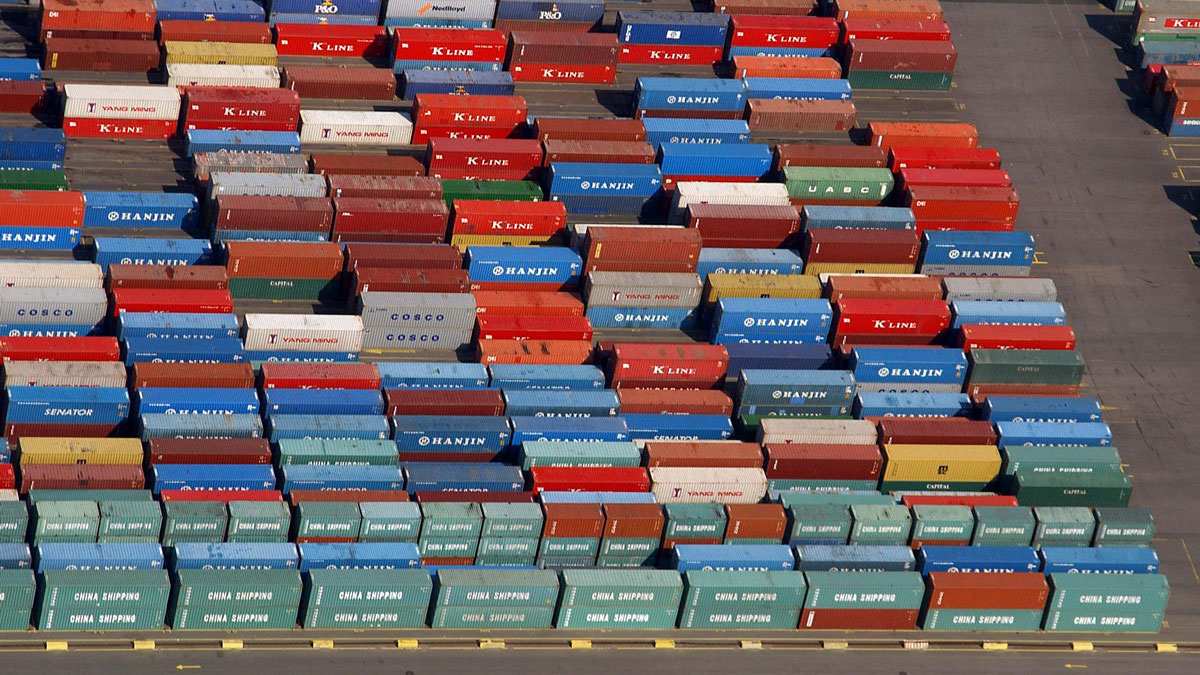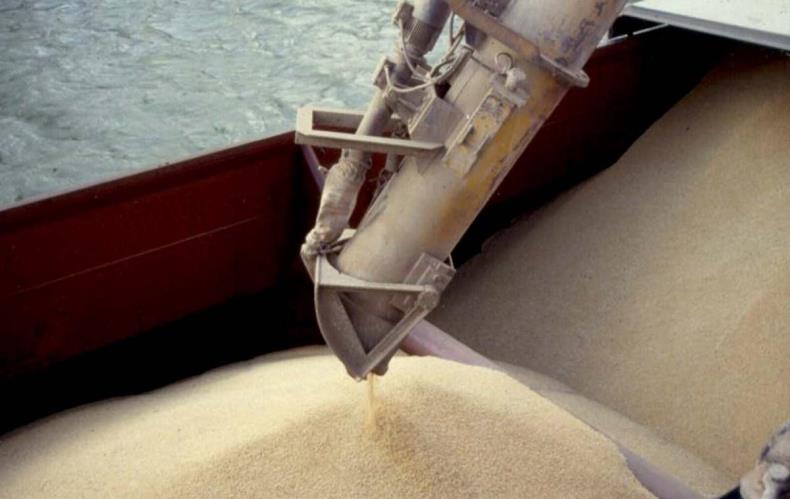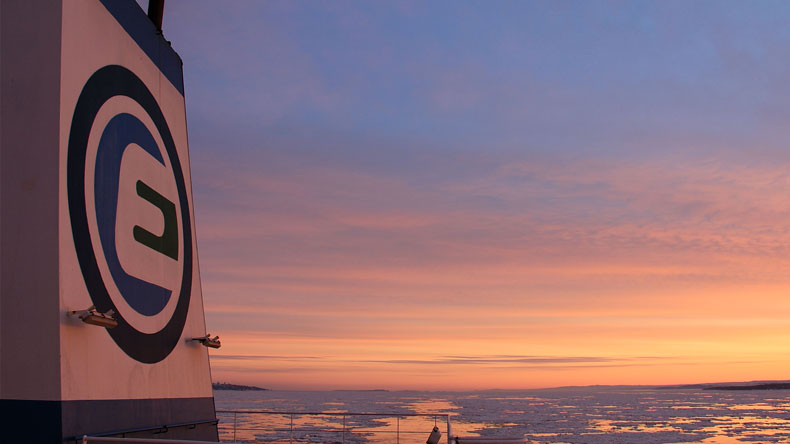Weekly briefing: Beirut container terminal reopens; fears for stricken capesize off Mauritius
Also, tanker operators expect weaker market in final months of year as floating storage unwinds
Minimal damage caused to the terminal in Beirut means that container traffic has resumed calls to the port, while Mauritius is preparing for a ‘worst case scenario’ following the grounding of the Wakashio capesize last month
THIS weekly briefing provides sector-by-sector coverage of the biggest news and analysis in shipping.
Follow the links within the text to the relevant news items in each market segment
Containers
The news this week has been dominated by the August 4 explosion that rocked the port of Beirut and which has shown that as bad as things are in 2020, they can still get worse.
The Lebanese capital’s container terminal, the largest in the country, sits just 1.5 km from the site of the ammonium nitrate store that exploded, creating havoc in the city and wiping out much of the port’s infrastructure.
Damage to the terminal was minimal, but the blast destroyed or damaged local offices of CMA CGM, Maersk, Hapag-Lloyd and Grimaldi’s agency. One CMA CGM employee lost his life in the disaster.
There were initial fears over the impact the explosion would have on container services to Lebanon.
Beirut handled 1.2m teu in 2019 and Lebanon will struggle to replace that capacity at alternative ports. Tripoli has just 600 m of quay space with two cranes, compared with the 1,100 m at Beirut with 16 cranes. Tripoli has capacity for only 400,000 teu per year.
The terminal can serve ships of up to 18,000 teu, although small feeder vessels make up the majority of the terminal’s calls.
By the end of the week, however, it became apparent that damage to the container terminal had been minimal. Some containers located closer to the explosion site had suffered damage, but the cranes were inspected and found to be functional.
By August 10, the first two containerships to call at the port since the explosion were able to discharge cargo, although there were some restrictions in place over customs agent’s access to the terminal. These too now appear to have been solved, and lines such as CMA CGM and Hapag-Lloyd have resumed services to the port.
The casualty has also called into question the safety of storing and transporting ammonium nitrate, the substance that caused the blast.
While commonly used as a fertiliser, and normally not considered an especially dangerous cargo, its potential use as an explosive means it is heavily regulated in most jurisdictions, and its safe storage requires that strict guidelines are followed.
Nevertheless, there are warnings that in some parts of the world, a lack of understanding of its potential volatility when exposed to the wrong conditions, weak regulation and enforcement, and commercial pressures could lead to a similar incident happening again.
Dry bulk
While the dry bulk market expected little immediate impact from the Beirut port explosion, rebuilding works would provide some support to demand.
Vessels were being diverted to Lebanon’s second-busiest port of Tripoli although it does not have warehousing facilities on site.
The other big news story this week is the stricken capesize off the coast of Mauritius, which is feared to be on the brink of splitting.
Mauritius is preparing for a “worst case scenario” following the grounding of the Wakashio capesize on July 25.
The vessel, which was ballasting from China, via Singapore, to Brazil, hit a reef near Pointe d’Esny, and started leaking fuel oil following damage to its starboard tank. Bad weather conditions were exacerbating salvage works.
The island’s prime minister fears the vessel could break in two, forcing the rest of the fuel to seep into the ocean, causing environmental damage to a sensitive ecosystem.
In company news, US-based Genco said it has a favourable outlook for the sector for the rest of the year given recovering demand and a low orderbook to fleet ratio. The company halved its net loss to $18.2m in the second quarter.
Another US-based owner Eagle Bulk saw its net loss widen to $20m from $6m in the year-earlier period. It sold an 18 year old supramax for gross proceeds of $5m.
US-listed owner Star Bulk posted a net loss of $44m, slightly higher than last year, and said it would be interested in consolidation deals so long as it did not increase its leverage. It agreed sale and leaseback deals for 16 of its bulkers with leasing outfits in the Far East.
While Thai operator Precious Shipping posted a net loss of $37.3m in the April to June period from $4.5m in the same period last year, its chief executive was optimistic for 2021 due to an expected pick up in demand following coronavirus combined with improved supply side dynamics as a result of recycling older ships.
Safe Bulkers is, meanwhile, looking to buy additional vessels as it launched an equity offering to raise up to $23.5m. The Nasdaq-listed company filed a prospectus with market regulators under which it could sell shares “from time to time” through DNB Markets, its appointed sales agent.
Danish owner and operator Norden has added two more ultramaxes to its existing newbuilding order of four vessels being built at the Nantong Cosco yard in China. The vessels will be delivered in 2022. The company also bought a supramax in the secondhand market which is due to join its fleet this quarter.
Tankers
Tanker operators expect an unwinding of floating storage and continued low demand for crude will weigh on the market in the coming months, but the outlook for earnings is relatively good.
US-listed crude tanker owner DHT Holdings said this week it expects a weaker market in the final half of 2020, compared with the first half of the year.
Spot freight rates for very large crude carriers are currently at about $20,000 per day, with the Atlantic market more active than the Middle East region.
However, increased port congestion may dampen what would otherwise be a strong final quarter of the year, co-chief executives Svein Harfjeld and Trygve Munthe said. In addition, an unwinding of floating storage may add to the softer sentiment.
But DHT can withstand tough market conditions, the executives said in a conference call. “We are very well positioned as we move into a period of weaker rates.”
Since its breakeven levels are low, it would still be able to generate cash, they explained.
Meanwhile, Euronav has reported that demand for floating storage boosted its earnings in the second quarter of 2020 and the start of the third. However, floating storage requirements declined sooner than expected “pivoting the tanker market to a transition phase ahead of our prior forecast,” it said.
The company said oil oversupply fell from mid-May onwards after crude production cuts and US shut-ins. Floating storage “disruption” would be less pronounced in the second half of the year, it added.
“The market may become more challenging if demand for crude oil continues to be negatively impacted by the pandemic,” it said. “This decrease in demand combined with the gradual release of vessels that are currently used as storage may distort the supply-demand balance and thus the freight market.
“However, some of these negative consequences could be partially offset by continuing logistical delays of ships in ports, increased level of recycling, reduced ordering of newbuild vessels and increased crude oil production, all neutralising the [virus] impact to a certain extent.”
The uncertainty in the market was also underlined by Scorpio Tankers as it posted its half year results.
Finally, CSSC (Hong Kong) Shipping has agreed a sale and leaseback deal for two product/chemical tankers linked with shipowner Goldwin Shipping.
The Hong Kong-listed shipyard-backed lessor will buy the 55,600 dwt pair for a total of nearly $71m and then bareboat charter them for 10 years to the original owner for $78.1m, according to an exchange filing.
The first vessel, owned by a company called Ray Fount Shipping, was delivered in June 2020 and sold at a slightly lower price. The second, owned by Ray Delight Shipping, will be handed over this month.
CSSC Shipping, part of state conglomerate China State Shipbuilding Corp, said both single ship entities, incorporated in the British Virgin Islands, were ultimately owned by the individual Jiang Wenjuan.
While the filing did not disclose the names and the builders of the vessels, it listed Hong Kong-based Fleet Ship Management and Goldwin Shipping as the shipmanagers.




